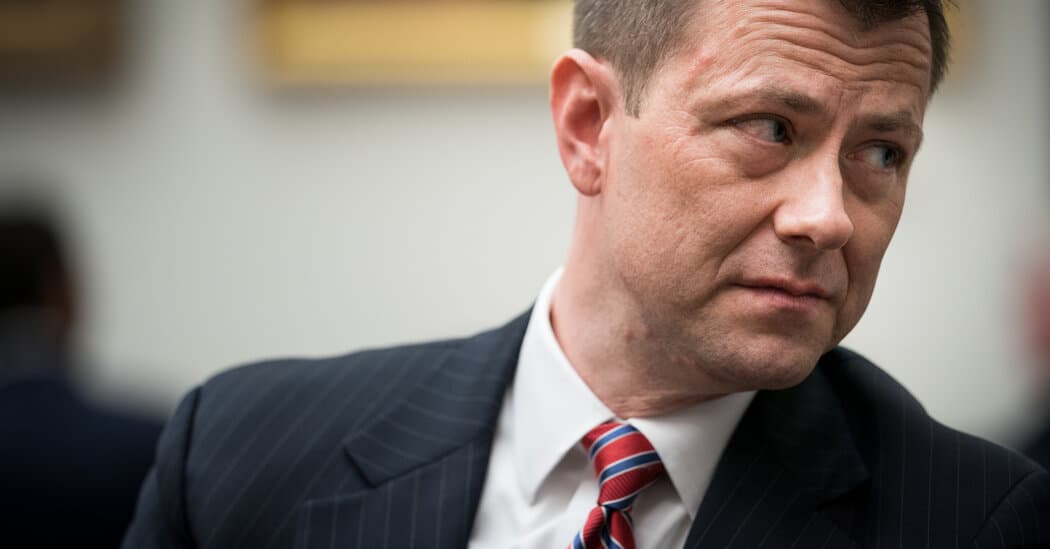The Justice Department settled a lawsuit on Friday with two former F.B.I. officials who had accused the Trump administration of violating their privacy by sharing their texts disparaging former President Donald J. Trump with the news media, according to court documents.
As part of the settlement, the government agreed to pay the former officials, Peter Strzok and Lisa Page, concluding at least some of the litigation. The amount was not disclosed in court filings, but Mr. Strzok’s law firm said he received $1.2 million.
Their texts incited a political firestorm after the Justice Department in December 2017 invited reporters to review them at night before handing them over to Congress. Then a senior F.B.I. counterintelligence agent who helped oversee the bureau’s investigation into the Trump campaign’s possible ties to Russia in 2016, Mr. Strzok exchanged inflammatory messages with Ms. Page, a bureau lawyer involved in the inquiry. Republicans seized on the texts to try to discredit the investigation.
The agreement is likely to anger Mr. Trump, who has railed against the pair for years and leveled baseless accusations that the investigation was a “witch hunt” intended to damage his campaign. Mr. Strzok drafted the memo opening the investigation, which was approved by his superiors.
In 2019, Mr. Strzok and Ms. Page filed separate lawsuits against the department and the F.B.I. Mr. Strzok is still suing the Justice Department on two other claims: that it violated his constitutional rights and that its subsequent decision to fire him was politically motivated. Mr. Strzok is seeking to be reinstated to his job so he can retire with full benefits.
Mr. Strzok’s lawyer, Aitan D. Goelman, welcomed the decision, adding that he would continue to argue the remaining claims. “This outcome is a critical step forward in addressing the government’s unfair and highly politicized treatment of Pete,” he said in a statement. “As important as it is for him, it also vindicates the privacy interests of all government employees.”
The New York Times
